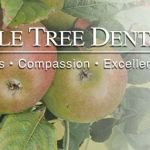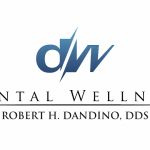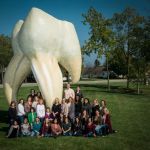Oral Health Challenges in Aging
As people age, they face a unique set of oral health challenges. Comorbid conditions such as hypertension and diabetes mellitus, along with physiological changes, complicate the baseline health state. Older adults may experience xerostomia, root and coronal caries, and periodontitis. They may also have increased sensitivity to drugs used in dentistry. The prevalence of untreated caries and periodontitis is significant among this demographic. Dementia and other cognitive impairments can further complicate dental hygiene management.
Medication Considerations for the Elderly
Ninety percent of people aged 65 and older use prescription drugs, and many take multiple medications daily. This polypharmacy can lead to inappropriate drug use, medication errors, and adverse reactions. A review of medical history and current medications is crucial for providing optimal dental care. Certain medications are associated with xerostomia and other oral health issues.
Oral Health and Dental Considerations
Xerostomia affects a significant portion of elderly patients and can lead to various oral problems. Good oral hygiene practices, including the use of appropriate toothbrushes and fluoride, as well as attention to diet, are recommended. Special care is needed for patients with secondary coronal caries. The use of epinephrine in local anesthetics should be minimized in older adults due to potential cardiovascular effects.
Communication and Care for Elderly Patients
Effective communication with elderly patients is essential. Approaches should be adapted to their specific needs, such as speaking clearly and slowly for those with hearing or visual loss. Caregiver and patient education is important in the prevention and management of dental issues. A consistent oral care routine should be maintained, and modifications may be necessary for those with physical limitations.
ADA Policy and Resources
The American Dental Association supports the development of policies for fair and equitable dental care for the elderly. There are numerous resources available, including research summaries, blogs, and guidelines, to assist dentists and patients in maintaining good oral health in old age.
Oral health education for the elderly is not only about treating existing problems but also about preventing them. By understanding the specific challenges faced by this age group, providing appropriate care, and promoting good oral hygiene practices, we can significantly improve the quality of life for our senior citizens. It is essential to consider their overall health, medication use, and individual limitations to ensure comprehensive and effective oral health care.

 Jody B Vance, DDS, MS, PC4.0 (119 review)
Jody B Vance, DDS, MS, PC4.0 (119 review) Apple Tree Dental Mounds View4.0 (611 review)
Apple Tree Dental Mounds View4.0 (611 review) Waukegan Dental Wellness0.0 (0 review)
Waukegan Dental Wellness0.0 (0 review) Chesheim Dental Associates4.0 (103 review)
Chesheim Dental Associates4.0 (103 review) White Plains Pediatric Dentistry4.0 (27 review)
White Plains Pediatric Dentistry4.0 (27 review) Puntillo & Crane Orthodontics5.0 (125 review)
Puntillo & Crane Orthodontics5.0 (125 review) The Importance of Oral Health Education During Pregnancy for a Healthy Pregnancy
The Importance of Oral Health Education During Pregnancy for a Healthy Pregnancy Best Tips for Brushing Your Teeth Properly for Healthy Gums: Essential Techniques for Oral Health
Best Tips for Brushing Your Teeth Properly for Healthy Gums: Essential Techniques for Oral Health Why Skipping Dental Checkups Can Lead to Bigger Oral Health Problems
Why Skipping Dental Checkups Can Lead to Bigger Oral Health Problems Advantages of Porcelain Dental Restorations
Advantages of Porcelain Dental Restorations How Can Diabetes Cause Tooth and Gum Problems? Preventing and Managing Oral Health Issues
How Can Diabetes Cause Tooth and Gum Problems? Preventing and Managing Oral Health Issues Healthy Habits for Promoting Good Oral Health and Hygiene: Tips for a Healthy Smile
Healthy Habits for Promoting Good Oral Health and Hygiene: Tips for a Healthy Smile